"To the Rabbi, There Were No Social Classes, Everyone Was His Child": A Special Interview with Rabbi Bakshi-Doron's Pupil
Rabbi Shai Amar, a close disciple of Rabbi Eliyahu Bakshi-Doron z"l, opens his heart, sharing about the Rabbi's miraculous and compassionate character that radiated his majesty and glory to all. Exclusive excerpts and selected stories from the Rabbi's will are published here for the first time.
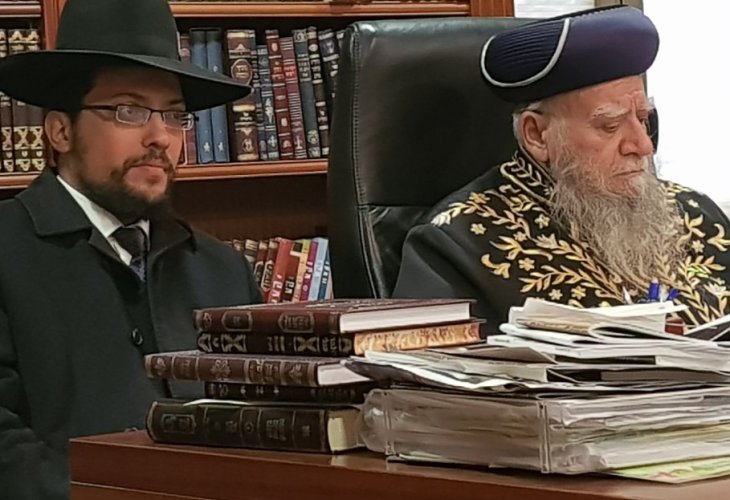 From right: Rabbi Eliyahu Bakshi-Doron z"l, photographed in the month of Shevat
From right: Rabbi Eliyahu Bakshi-Doron z"l, photographed in the month of ShevatAs the 'Shiva' for the former Chief Rabbi, Rabbi Eliyahu Bakshi-Doron z"l, concludes, we spoke with his devoted disciple of many years, Rabbi Shai Amar, renowned for his numerous classes on the laws of kashrut and more.
Rabbi Amar recalls the Rabbi's teachings, speaking about Rabbi Bakshi-Doron with deep sorrow. "I am very pained. A huge hole has been left in my heart with the Rabbi's passing," Rabbi Shai Amar begins our conversation. "Sadly, I wasn't able to be with him in his last days because he was isolated due to the coronavirus. Importantly, the Rabbi was very committed to the Health Ministry's guidelines, and he and his office adhered to them strictly. His personal aides even isolated themselves without being asked, only to protect his health. The Rabbi also closed the synagogue under his house and prayed alone according to the strictest guidelines.
"We do not understand Heaven's reasons, and we are not looking for explanations or reasons for the tragic way in which the Rabbi departed."
10 Days Before His Passing:
Extraordinary Sensitivity
When did you know that the Rabbi had contracted the coronavirus?
"We did not know before everyone else," he reveals. "We received this painful news when all of Israel did. It's true just a day before, a household member told me the Rabbi seemed weak and particularly suffering, but we didn't think it was the coronavirus. The Rabbi endured great pains, and they always took care of him at home as if he were a precious etrog. When I last saw him, I had a bad feeling in my heart; I saw he was suffering, but I shared my feelings with no one."
Rabbi Amar pauses and takes a deep breath. "The Rabbi was a genius of halacha and a genius of character," he asserts. "He was a great understander of the human psyche. This was evident in the way he answered questions posed to him. Generally, rabbis answer with a straightforward, principled response to the question asked, but not with Rabbi Bakshi-Doron. He always responded according to the individual asking, understanding the essence of the question, investigating and examining the case based on the simple question asked, and only then provided an answer fully tailored to the present inquirer. He addressed both the question and the questioner.
"I'll tell you an amazing story that Avi Shitrit, the head of his office, told me," he shares. "The Rabbi's office used to be in the 'Beth Ariel' building in Jerusalem's Bayit Vegan neighborhood, near the Mount Herzl military cemetery. During one of the dark periods when many funerals were held in the cemetery, Avi Shitrit was asked to accompany the Rabbi nearly daily to attend the funerals there. One day, the head of the office innocently asked the Rabbi how it came to be that everyone invited him to attend their loved ones' funerals. The Rabbi's response left him astonished. 'No one invites me,' said the Rabbi, 'I come to share in the families' pain without an invitation because my heart aches for their departed loved one just as they do.'
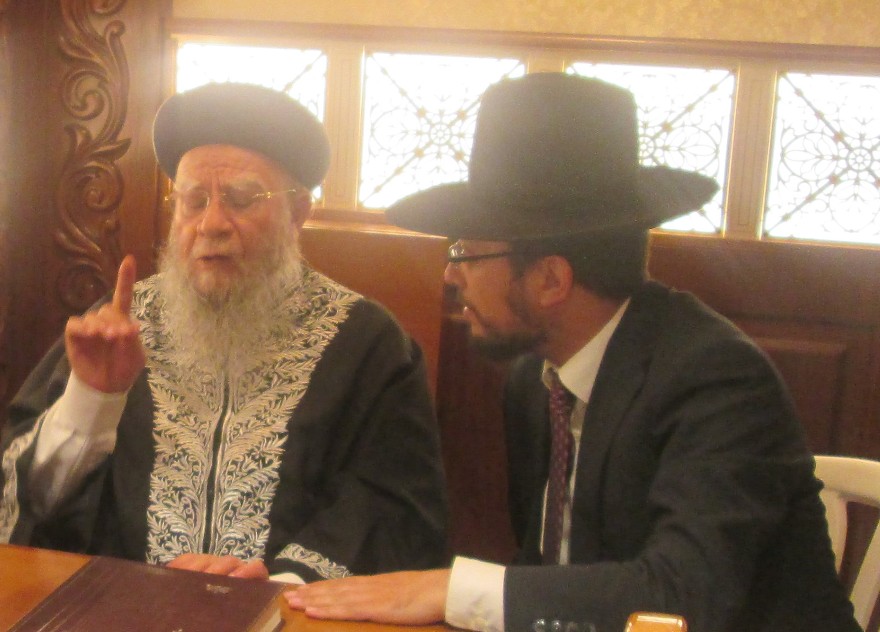
"You understand?" Rabbi Amar asks me, "The former Chief Rabbi, with all his stature, arrives to participate in the soldiers' funerals on Mount Herzl and honor the families with his presence solely because of the pain he feels in his heart, without invitation or request. His simplicity and humility won everyone over.
"I'll tell you another story," he continues. "About ten years ago, the Rabbi delivered a very special class on the kashrut of electric shavers. The Rabbi discussed halacha and drew the listeners' attention to the topic. Naturally, the class sparked much interest, and a long queue of questioners formed outside his office. All had come with their electric shavers, seeking the Rabbi's opinion on their kashrut.
"To the office head, this seemed illogical. Rabbi Bakshi-Doron was the Chief Rabbi of Israel; it was unfitting for him to answer each person's individual query and determine the kashrut of each specific shaver. The Chief Rabbi handled complex issues like agunot, and had no time for such matters.
"Without a word, he closed the door and announced to all the inquirers that the Rabbi would not receive in these matters, and they should seek guidance from their personal rabbis or local rabbinical authorities.
"When the Rabbi heard this, he was very upset. He ordered the office head to open the door immediately and personally and accurately answered each questioner.
"To the Rabbi, there were no class differences; everyone was truly his child. That's how everyone felt who was with him. Personally, I was 'nourished' by his compassionate gaze and gentle manner. A small glance from his merciful eyes was enough to fill me," concludes Rabbi Amar.
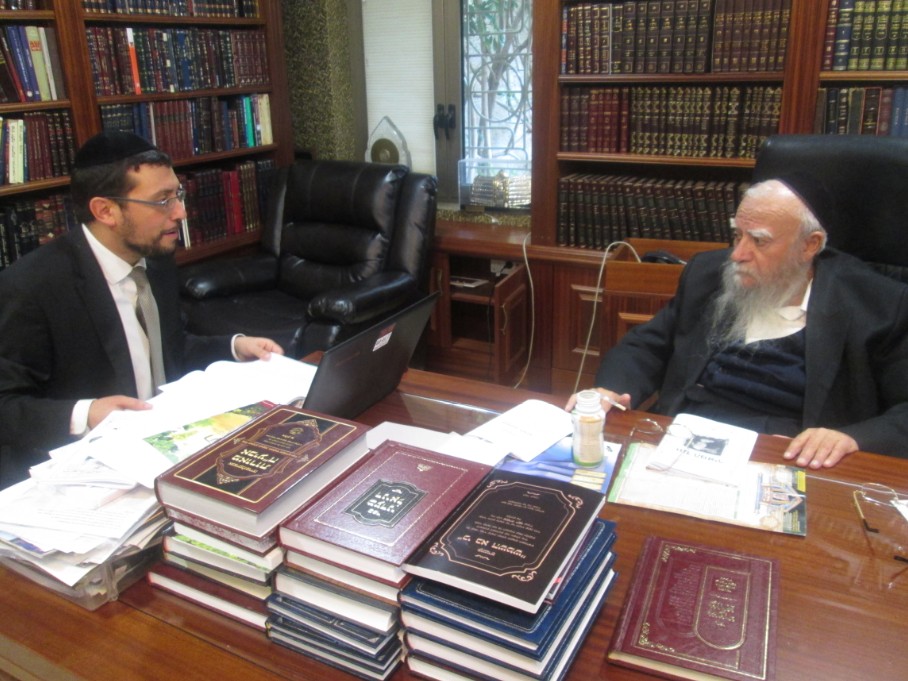 Rabbi Shai Amar learning with the former Chief Rabbi z
Rabbi Shai Amar learning with the former Chief Rabbi zA Righteous Man's Decree and Hashem Fulfills
"I do not like using the word 'miracle' concerning the Rabbi," emphasizes Rabbi Amar after I ask if he witnessed miracles and wonders in the Rabbi's home. "He was much more than a miracle worker. He was a genius of halacha and character. I always say that anyone dedicated to learning Torah day and night naturally becomes a miracle worker, in the sense of a righteous man's decree and Hashem fulfills it. The Rabbi, as is known, engaged in Torah study all his life until his last day. On his last day in the hospital, the Rabbi learned Torah and even managed to pray the Maariv service and count the Omer.
"In general, his prayers always seemed as if he were counting money. This is evident in the well-known video filmed about ten days before he passed, where the Rabbi prays calmly. What particularly caught my eye were the words he says there, 'You have turned my mourning into dancing for me,' word by word. The Rabbi also never missed the Shacharit prayer at sunrise, as all his eulogizers testified at his funeral."
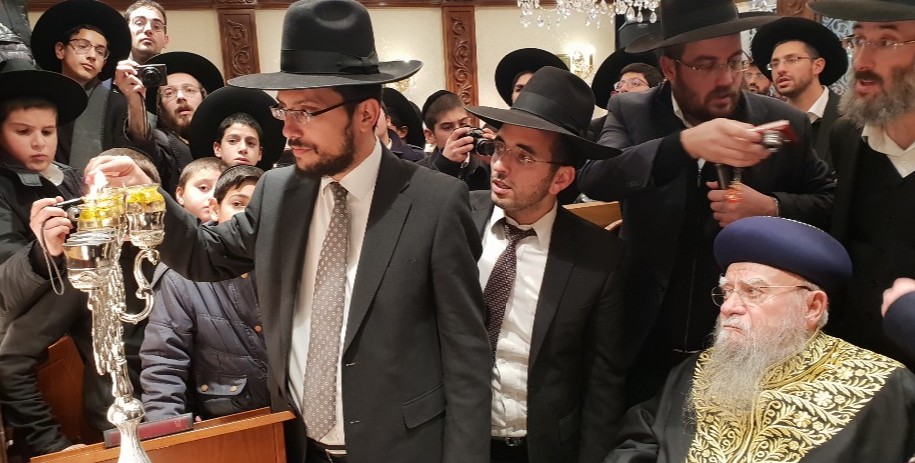 Lighting the fifth Chanukah candle at the former Chief Rabbi's study house
Lighting the fifth Chanukah candle at the former Chief Rabbi's study house"Yet I'll tell you about an incident concerning a relative of mine. During one pregnancy, doctors told his wife that the child was severely deformed and that continuing the pregnancy was pointless. They claimed that if the fetus were born, he would be sick and suffer all his life and be a burden on his parents and the whole family.
"In their distress, I brought them to my teacher and Rabbi, Rabbi Bakshi-Doron, and we asked him for a blessing. The Rabbi, with his smile and pleasant demeanor, completely dismissed the doctors' words and blessed that the fetus would be born healthy and whole. The Rabbi pointed upward and said: 'Only Hashem decides.'
"And indeed, thanks to their simple faith in the Rabbi's blessing, the parents were blessed with a beautiful and healthy son, and I was privileged to serve as his mohel," adds Rabbi Amar with a smile.
We asked to learn about Rabbi Bakshi-Doron's will, and Rabbi Amar shares parts of it with us. "The Rabbi requested that at his funeral they sing the piyut 'Bring me to your Garden of Eden,' and that the children of the cheder recite the Psalm 'He who dwells in the secret place.' The Rabbi also requested that they make 'hakafot' around his bier, as is the Jerusalem custom, something that they were only able to do at the start of this past week."
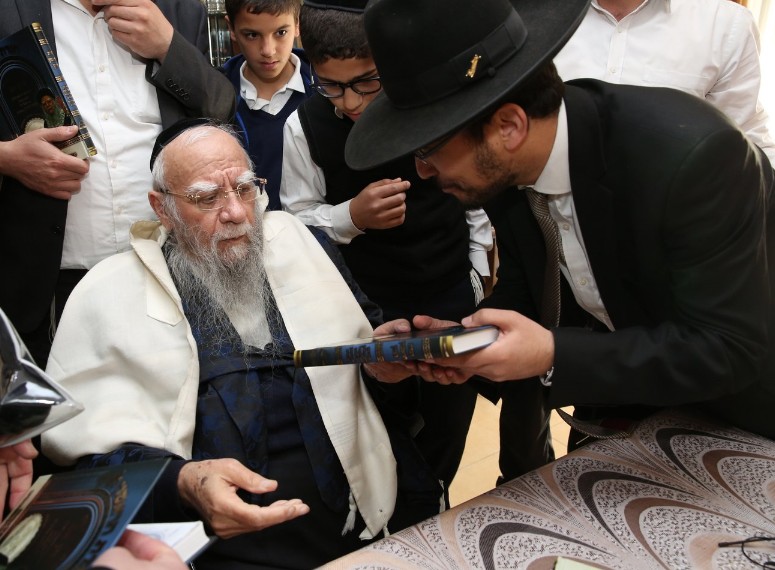
"But the centerpiece lies precisely in his simple instructions to the participants. The Rabbi asks 'not to cry and to be joyous,' as if he knew his funeral would occur during Passover, a time of joy. The Rabbi also commands 'not to prolong the eulogies,' an instruction that is also relevant to these days. The Rabbi adds and requests that at all memorials, they learn from his book 'Binyan Av.'
"What caught my eye was a very interesting sentence that Rabbi Bakshi-Doron wrote in his will: 'Thank you for what I have been privileged to achieve.'
Think about it - people before their death plead for the redemption of their souls and to fix what they did not manage, but the Rabbi writes with such simplicity: 'Thank you for what I have been privileged to achieve.' The Rabbi was complete in his passing, joyous at his departure, knowing he fulfilled his role in this world with absolute fidelity."
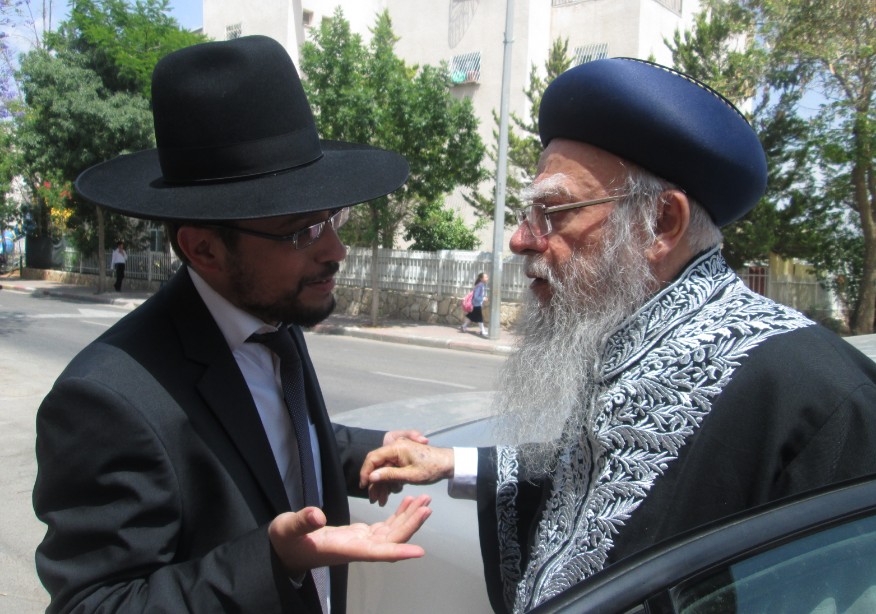
Have you managed to visit the Rabbi's grave?
"I haven't ascended yet, despite my desire. I remember the Rabbi's conduct, who was very strict against going to the cemetery in the month of Nissan, and I try to adhere to it. The Rabbi's wife, of blessed memory, also passed in Nissan, on the 29th of the month, and the Rabbi would not go to her grave on that date but rather on the eve of Rosh Chodesh Nissan."
The absence of Rabbi Bakshi-Doron leaves a personal void in Rabbi Amar's heart because in about six months his son will joyously enter the obligations of commandments; since his birth, the family eagerly awaited the Bar Mitzvah day when the former Chief Rabbi z"l would come to participate.
"I beg everyone," Rabbi Amar tells me. "I have never asked anything from my listeners and those who attend my classes. But this time I am begging. I am asking everyone to pay their respects. Whoever can, whoever is able, I ask them to do anything they can for the soul of Rabbi Bakshi-Doron z"l. Everyone in their own way, everyone according to their practices. Anyone who can give charity in his memory, even small coins. Anyone who can light a candle, read Mishnah or Psalms for the Rabbi - will be blessed. I plead for every action, every spiritual action for the soul of Rabbi Bakshi-Doron z"l. Organize groups for Psalms and Mishnah study. Above all, study his books. The Rabbi requested this in his will, let's fulfill it.
"On my program on Kol Berama," the Rabbi adds, "we organized an enormous project together with the Rabbi's office, where everyone will study on the day marking the end of the 'shiva' for the Rabbi, at eight in the evening, from the Rabbi's books. Even for those who do not have Rabbi Bakshi-Doron's books at home, we found a solution. One can contact the Rabbi's office at telephone number: 02-6446660 extension 1, and from there a section or part of his writings will be sent to the requester in any way.
"The Rabbi requested in his will to spread his books. They were precious to him, and we shall repay him through them with Hashem's help. Do all you can for the soul of the former Chief Rabbi, Rabbi Eliyahu ben Tova beya."

